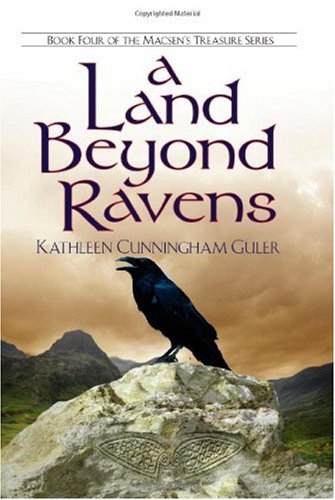A Land Beyond Ravens
At the very end of this novel, the fourth and final book of Guler’s Macsen’s Treasure series, Claerwen tells her husband Marcus, “I broke the joy you felt in what happened here.” Her words might easily apply to the mood throughout: despite the hope offered by the prospect of Arthur’s succession, anxiety and fear dominate.
Mind you, there is good reason for alarm. The novel is set in fifth-century Britain, when invading Saxons are driving the British ever farther west; in the face of this threat to their very survival, the British rulers remain disunited and quarrelsome, while the Christian Church is concerned only to grasp political power for itself. Furthermore, Marcus has attracted the enmity of his overlord, Cadwallon, King of Gwynedd; Uther, the High King whom he has long served as a spy, has grown autocratic and suspicious of him; and his beloved wife is plagued by a heart condition and by ominous and confusing visions of the future, involving the Grail, Camlann, and Medraut. As they struggle to ensure that Arthur succeeds his father as High King, it is upon their trials that Guler focuses. Moments of success or happiness, such as the loving embraces between husband and wife, are passed over briefly or undercut by their pressing concerns; by contrast, accusations and threats, capture and beatings, and worry for those they care about, abound and make the lives of Marcus and Claerwen very stressful indeed.
The picture of what is now north Wales in the 5th century is credible and probably depressingly accurate. If you like your Dark Ages suitably dark, your tyrants vengeful, your traitors vicious, and your heroes harried (think Henry Treece), then this is for you.










